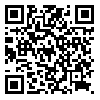BibTeX | RIS | EndNote | Medlars | ProCite | Reference Manager | RefWorks
Send citation to:
URL: http://jdisabilstud.org/article-1-2453-en.html
Background & Objectives: Parent–child interactions and parenting practices are the most fundamental family factors affecting children’s mental health and mothers play the most important role in forming children’s mental and emotional characteristics. Parenting is one of the most difficult and demanding tasks in the life of many parents. One way to help improve parenting and reduce parenting anxiety is to teach mindfulness to parents and children. Teaching parents about intrapersonal mindfulness exercises is a strategy for developing parenting skills. The goal of mindfulness–based parenting is to reduce the stress associated with the parenting challenge by using mindfulness exercises. The parents are taught that the stressful situation between parents and children can sometimes lead to intense emotional relationships, which in turn exacerbate differences. Mindfulness can make disciplines and connections between parents and children. In this study, we aimed to investigate the effectiveness of the mindfulness–enhanced strengthening families program (MSFP) in improving extrapersonal and intrapersonal mindfulness interactions of mothers of children, 10 to 14 years old.
Methods: The research method was quasi–experimental with a pretest–posttest design with a control group. The statistical population included mothers of 10–14 years old children, who participated in Ghalamchi Institute in Mashhad City, Iran. Using the available sampling method among 30 selected mothers, 24 people accepted to participate in the study and were randomly assigned into one experimental and one control group (12 participants in each group). The inclusion criteria were the selection of mothers of 10–14 years old children, minimum level of diploma or higher, having mental health in the mother and volunteering to participate in the treatment plan. The exclusion criteria were level of education below diploma, history of mental disorder or taking medication, and receiving other psychological therapies. The study data were gathered via the Interpersonal Mindfulness in Parenting Scale (Duncan et al., 2007) and Five–Factor Mindfulness Questionnaire (Bauer et al, 2006) in pretest and posttest for two groups. The research intervention was performed using a Coatsworth et al.ʹs mindfulness–enhanced strengthening families program (2018). The members of the experimental group were trained for seven 120–min sessions. The parents were trained with a specialist therapist for the first 60 minutes, and their children were trained separately with another therapist in the first hour. In the second hour, their parents and children attended a joint training session with two therapists. However, the control group did not receive training. To describe the data, mean, standard deviation, frequency and percentage indices were calculated. Univariate analysis of covariance was used to analyze the data. Also, to compare the two groups in terms of age, the independent t test was used and to compare the two groups in terms of education level, the Chi–square test was used. The mentioned statistical analyzes were performed in SPSS software version 21. The significance level for statistical tests was considered 0.05.
Results: The results showed a significant difference between the experimental group receiving the mindfulness–enhanced strengthening families program and the control group in terms of intrapersonal mindfulness (p=0.015) and extrapersonal mindfulness (p=0.002). Also, the mindfulness–enhanced strengthening families program explained 28% and 51% of the changes in mothers' intrapersonal and extrapersonal mindfulness, respectively.
Conclusion: Based on the findings of this study, the mindfulness–enhanced strengthening families program improves the intrapersonal and extrapersonal mindfulness of mothers of 10 to 14 years old children. Therefore, this program can be used to improve parent–child interactions.
| Rights and permissions | |
 |
This work is licensed under a Creative Commons Attribution-NonCommercial 4.0 International License. |



